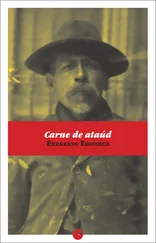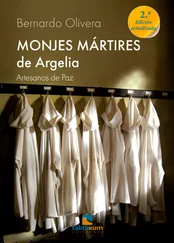Bernardo Atxaga - Obabakoak
Здесь есть возможность читать онлайн «Bernardo Atxaga - Obabakoak» весь текст электронной книги совершенно бесплатно (целиком полную версию без сокращений). В некоторых случаях можно слушать аудио, скачать через торрент в формате fb2 и присутствует краткое содержание. Год выпуска: 2010, Издательство: Graywolf Press, Жанр: Современная проза, на английском языке. Описание произведения, (предисловие) а так же отзывы посетителей доступны на портале библиотеки ЛибКат.
- Название:Obabakoak
- Автор:
- Издательство:Graywolf Press
- Жанр:
- Год:2010
- ISBN:нет данных
- Рейтинг книги:3 / 5. Голосов: 1
-
Избранное:Добавить в избранное
- Отзывы:
-
Ваша оценка:
- 60
- 1
- 2
- 3
- 4
- 5
Obabakoak: краткое содержание, описание и аннотация
Предлагаем к чтению аннотацию, описание, краткое содержание или предисловие (зависит от того, что написал сам автор книги «Obabakoak»). Если вы не нашли необходимую информацию о книге — напишите в комментариях, мы постараемся отыскать её.
Obabakoak
The Observer
Obabakoak — читать онлайн бесплатно полную книгу (весь текст) целиком
Ниже представлен текст книги, разбитый по страницам. Система сохранения места последней прочитанной страницы, позволяет с удобством читать онлайн бесплатно книгу «Obabakoak», без необходимости каждый раз заново искать на чём Вы остановились. Поставьте закладку, и сможете в любой момент перейти на страницу, на которой закончили чтение.
Интервал:
Закладка:
“Is it too late, Klaus?” he asked the mirror.
But before anyone could answer the question, the mirror emptied and their conversation was interrupted. The noise of hundreds of car horns drifted up from the street.
“A traffic jam, Klaus. A beautiful sight, eh?” Alexander remarked when Klaus opened the window and leaned out.
“It certainly is, Alexander,” he agreed.
Surrounded by cars, the traffic lights on Bulachweg changed vainly from green to red and from red to green. Opposite his front door, a man delivering bread was cursing the traffic jam that had boxed in his van between two buses.
With his gaze fixed on the van, it occurred to Klaus Hanhn that for the third time that morning — the blue sky and the alarm clocks had been the other instances — destiny was taking the trouble to send him signals to help him understand the advantages of his new way of life. For he too, in that past he had only just left behind, had been a humble baker’s delivery man; from six in the morning until five in the afternoon, every day, even on Saturdays. His life had consisted of just that, of delivering bread, ordinary bread, to the shops, speciality and specially ordered bread to the houses of the wealthy in the prosperous parts of the city. He was all too familiar with the traffic jams that held up deliveries and lengthened the working day. That very Monday he could have been in the same situation as the delivery man sitting there shouting and fuming in his van. But the fact was that his clocks said it was ten past ten and he wasn’t out there. No, he wasn’t out in the street, but at home. And what’s more, he’d unplugged the phone. No one could call him, no one could ask him why he hadn’t gone to work.
Destiny smiled on the brave, for he had been brave. He would never go back to the van.
This second of September had to be different in every way from other days, even in its most insignificant details, and so instead of his usual shower Klaus Hanhn took an invigorating bath with the water at 70°F. Then he returned to the living room and breakfasted on tea, toast, and butter, sitting on the sofa, naked, with the sun shining full on him. He wanted to dry in the sun, slowly. From that day forth, he would always live that way, sweetly and slowly, like a sleeping fish letting itself be borne along by the current.
When he’d breakfasted, he plugged in his phone again and called a taxi. He put his clothes on over his still damp skin and went down to the front door.
Half an hour later he was going into one of the plushest department stores on Avenue Kieler. He asked to be shown their most expensive clothes, and the shop assistant, dropping the bored tone she had adopted when greeting him, asked him what sort of clothes he meant.
Klaus explained that he wanted a complete head-to-toe change of outfit. He needed underwear, socks, a shirt, and a pair of shoes all in blue, and then, and this was the most important part, a light summer suit, in white. And he wanted to wear it now. If they wouldn’t mind — he knew they wouldn’t — he would leave the clothes he was wearing with them.
“Are you sure you want a summer suit? Summer won’t last forever,” argued the shop assistant with a look of unexpected complicity. She pointed to the small calendar next to the cash register. Autumn was nearly upon them and it could be very chilly.
“It’s always summer on the island of turtles,” said Klaus with the same complicit smile worn by the shop assistant.
“Whatever made you say that, Klaus?” he heard a voice say. Alexander’s tone was sharp, reproachful.
Klaus’s smile vanished from his face. That remark about the turtles — a travel agent’s slogan — could be seen written in huge letters across a background of palm trees on nearly every advertising billboard in the city. His witty riposte meant that the shop assistant was now in possession of information that could put his whole New Era at risk.
“You’ve acted unwisely, Klaus. This woman will remember the answer you gave. Let’s just hope the information never reaches certain other people’s ears,” whispered Alexander.
His little brother was right. He wanted to live peacefully, like a sleeping fish, letting himself be borne along by the current; but, even when asleep, fishes ensured a happy ending to their dreams by always keeping one part of their brain alert. He should follow their example. He should not forget the existence of other fish, unsleeping, vigilant, more powerful than he; fish that could smell blood and track it down to its source. He must beware of them. Another twenty-four hours and he would be safe. Until then he must act prudently.
“Where are you going?” exclaimed Klaus when he saw the shop assistant making for the telephone installed at the other end of the counter. His expression was one of anguish.
“She’s going to call the police. Kill her, Klaus! Kill her now!” Alexander shouted. Being a child, he could not distinguish between good and bad and sometimes behaved foolishly. Especially when he was frightened.
“Don’t talk nonsense, Alexander!” he shouted back. Then, his hands drenched in sweat, he followed the shop assistant over to the phone. But she was still smiling at him. She seemed to suspect nothing.
“We don’t keep all our stock here in the shop. We have to get some things from the warehouse in the basement,” she said. Then, lowering her eyes and putting her lips to the phone, she asked: “Have we got any blue shoes?”
The shop assistant hung up and at the same time nodded to him. Yes, they did have blue shoes. He would leave the shop dressed just the way he wanted. In a couple of minutes she would return with all the clothes he’d asked for.
Klaus took advantage of the shop assistant’s absence to speak with his younger brother. They must not lose their heads and succumb to fear, because fear was the worst counsellor: It concealed the roads leading to salvation and lit instead those that led straight into the abyss. Moreover, he almost never acted the way he had when he’d made that remark about the island of turtles.
“You’re right, Alexander. I’m usually very prudent. If I weren’t, I wouldn’t have reserved tonight’s air ticket six months in advance.”
But the shop assistant was calling him over. Klaus broke off his inner dialogue and went to try on the white suit.
By the time he left the shop it was past midday and the sun’s rays were falling vertically on Avenue Kieler. The pavements were filled with lunchtime office workers making for the park around the Binnenalster Lake.
Choosing the opposite direction, Klaus began walking toward the St. Pauli district, in one of whose streets — Brauerstrasse — was the city’s most famous beauty salon for men, Sebastian.
It was not the first time he’d made that walk but nevertheless he had the impression that, from the moment he set out, everything was completely new and different: what he saw, what he heard, what he felt. Luckily for him, the novelty lay not outside but inside himself. For the Klaus Hanhn of that second day of September had nothing whatsoever to do with the former baker’s deliveryman who, late on Saturday afternoons, would go to the salon and make do with only the cheapest services offered. And that impression grew stronger with every sideways glance at the shop windows he passed, because all the reflections, in all their multiplicity, spoke of the same thing: of a rich man dressed all in white, enjoying a summer stroll.
“Klaus Hanhn?” he asked, stopping on the pavement.
Alexander warned him that talking to a florist’s shop window was a little eccentric and that passersby might begin to ask questions. But he didn’t care about passersby. All that mattered was that new man clasping a bunch of tulips to his chest.
Читать дальшеИнтервал:
Закладка:
Похожие книги на «Obabakoak»
Представляем Вашему вниманию похожие книги на «Obabakoak» списком для выбора. Мы отобрали схожую по названию и смыслу литературу в надежде предоставить читателям больше вариантов отыскать новые, интересные, ещё непрочитанные произведения.
Обсуждение, отзывы о книге «Obabakoak» и просто собственные мнения читателей. Оставьте ваши комментарии, напишите, что Вы думаете о произведении, его смысле или главных героях. Укажите что конкретно понравилось, а что нет, и почему Вы так считаете.











